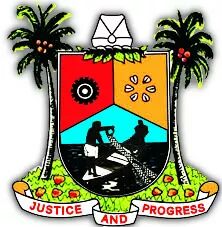
The Lagos State Government has revealed plans to partner Ecobank Nigeria Plc for intervention in the fisheries value chain to enhance living standards in the artisanal fishing communities of the State.
The State Commissioner for Agriculture, Ms. Abisola Olusanya, who made this known today in Lagos, explained that the intervention was designed to support artisanal fisheries which thrive on small-scale ventures, low-technology and low-capital fishing practices that are undertaken mainly by individual households using small amounts of capital and energy.
Olusanya maintained that the intervention would enable the artisanal fisher folks and communities to access funds for acquiring fishing boats and equipment for youths to enhance their businesses and standard of living, disclosing that the artisanal fisheries sub-sector of the State’s fish supply chain presently contributes 80% of local fish production and provides a major source of livelihood for those engaged in the trade.
“The Ministry intends to partner with a financial institution to enable the artisanal fisher folks in the State access funds. This fund could be used to provide fishing boats and equipment such as nets and fish finders for the youth. Already, a total of 8,844 fishermen have since been identified in 325 fishing villages across the five administrative divisions of the State”, the Commissioner said.
She stated that Ecobank has already commenced the intervention by visiting fishing communities to capture the data of youths in the artisanal fisheries subsector for Bank Verification Number (BVN) registration, and to formally bring them into the banking sector so that they can access government intervention funds such as the Anchor Borrowers Scheme, among others.
The Commissioner disclosed that the youths are the focus of the intervention in order to encourage their participation in the artisanal fisheries value chain currently dominated by aged fishermen, stressing that adequate training of those youths will equip them to take over from the older generation of fishers.
Asserting that Lagos as a maritime State has 22% of its total land area made up of a vast network of lagoon, rivers, swamps and other water bodies that are amenable for fish production, Olusanya pointed out that the State has a comparative advantage in fishing and its related activities with major occupants living along the coastal and inland water areas engaged in fishery.
She envisaged that “the proposed artisanal fisheries value intervention will improve fish landing per unit effort, increase income and enhance the standard of living in the artisanal fishing communities, make fishing attractive and seamless to youths, who in the past were not ready to adopt fishing as a profession, thereby replacing the ageing fishermen population”.
“It will also provide opportunities for fisher folks to have access to banking services at various fishing communities across the State; upscale the local fish production; create jobs and reduce the rural-urban drift; empower the fisher folks; as well as promote the availability of fresh fish at affordable prices,” Olusanya stated.












